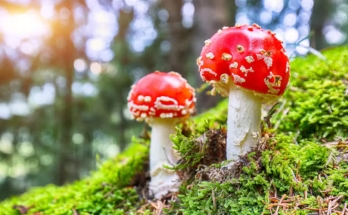You may have observed changes in a person’s mental state, like irritability and depression, in someone you know who is struggling with alcoholism. Alcohol and mood swings go hand in hand, thus this is to be expected. This condition is commonly known as “alcoholic mood swings.” Let’s delve deeper and get to understand the connection between alcohol and mood swings.
Alcohol and Mood Swings
It’s common knowledge that heavy drinking alters one’s behavior. Many folks abuse alcohol to attempt to alleviate unwanted feelings. When depressed, many people turn to alcohol in the hope that it may lift their mood. Also, many people abuse alcohol to alleviate anxiety and settle their nerves. Many of us have probably tried drinking to soften our moods. Alcohol, however, is never a good way to lift one’s mood or fix one’s issues. In reality, however, excessive alcohol use may have the opposite impact.
Does Drinking Alcohol Cause Mood Swings?
Certainly, alcohol abuse is linked to a variety of emotional changes. There may be some temporary improvements in mood due to alcohol consumption, but the effects of drinking are often negative in the long run. The neurotransmitters dopamine and gamma-aminobutyric acid (GABA) are two of the many that alcohol affects in the brain and central nervous system (CNS). Alcohol increases the production and release of these neurotransmitters, which is why most people who drink report feeling calm and happy (a “buzzed” state) after a few drinks. However, alcohol’s effect on mood worsens with increased intake.
There are many ways in which alcohol causes mood swings:
- Unstable dopamine levels. Dopamine is a neurotransmitter involved in reward and pleasure. The release of this neurotransmitter is affected by alcohol. At first, alcohol consumption can increase dopamine levels, which in turn can increase feelings of well-being and enjoyment. This is nonetheless temporary since the levels of this neurotransmitter decrease as the alcohol wears off. Dopamine is a neurotransmitter that contributes to a positive mood, but low levels can lead to depression, sadness, or irritability.
- Unstable GABA levels. Alcohol induces the production and release of the inhibitory neurotransmitter, GABA. GABA can help bring on a state of calm and drowsiness by decreasing brain activity. This may lead to exhilaration and reduced anxiety at first, but continued alcohol usage is associated with a rebound effect that includes increased anxiety, mood swings, and irritability.
- Lack of enough sleep. Both the quantity and quality of sleep can be negatively impacted by alcohol consumption. Of course, inadequate sleep is notorious for causing mood swings.
- Since alcohol is a diuretic, it might cause you to lose a lot of fluids through increased urination. Dehydration has been linked to low mood, irritability, and less energy.
- Negative experiences. Increased social problems and an increase in the propensity to engage in dangerous behavior have both been linked to alcohol consumption. Mood swings might be triggered by negative experiences or issues connected to alcohol consumption like broken relationships, engaging in risky behaviors, etc.
Recognizing the Warning Signs of an Alcohol-Induced Mood Swing
Mood swings caused by alcohol consumption can be challenging to manage. Take note of the following warning signs that someone you care about may be experiencing alcohol-induced mood swings:
- Irregular sleep schedule
- Out-of-character shifts in mood, such as abrupt anger, depression, or giddiness.
- Changes in eating patterns or appetite.
- Isolation or disengagement from others.
Contact Skyward Treatment Center for The Best Intervention Measures In Regard To Alcohol Addiction and Alcoholic Mood Swings.
It is essential that someone experiencing alcoholic mood swings seek expert care. Experts at Skyward Treatment Center in Houston, Texas, are ready to help anyone struggling with these two conditions. Our treatment programs encompass detox, inpatient and outpatient care, support groups like AA, etc, for alcohol addiction, and other holistic methods to manage alcoholic mood swings.




